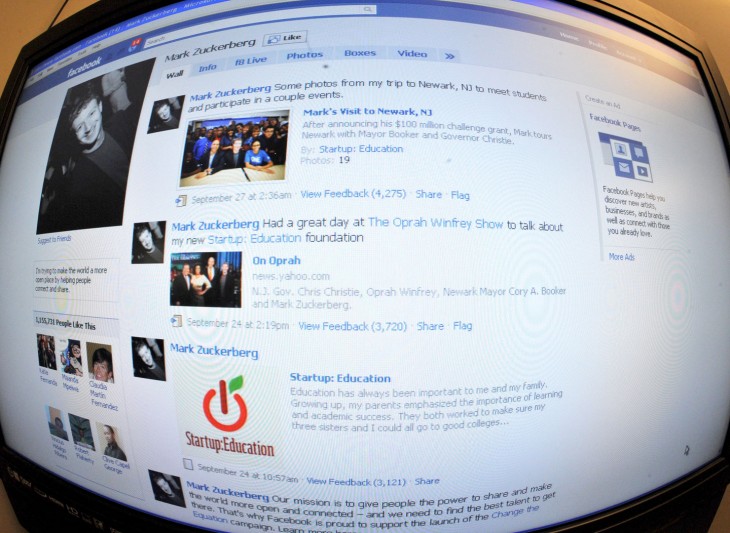Facebook at 10: How it grew from a social network to a social phenomenon
Privacy readjusted, but not forgotten
One of the things that have become synonymous with Facebook is privacy. With the popularity of user-generated content, privacy is of the utmost concern for users and, believe it or not, companies that run these services. However, as Facebook rolls out new products and updates, it is often faced with the backlash from its users who fear that a little bit more of their privacy is being sacrificed.
One of the earliest protests against Facebook’s efforts came about in 2006 when a Northwestern University student by the name of Ben Parr created a group called “Students Against Facebook News Feed (Official Petition to Facebook)” and amassed a membership of over 284,000 students upset over the introduction of the News Feed on the social network. The issue at hand: News Feed was too intrusive.
This revolt continued years later when Facebook made a change in its Terms of Use policy. This time the uproar came about when Zuckerberg included a stipulation that while information on the social network was owned by the user, if it was removed, Facebook would retain the rights to use it how they want, including in advertisements. This sent the community in a tizzy and even a clarification post from the company CEO did nothing to diminish the protesters’ resolve. Eventually Facebook acquiesced and retracted its changes.
In the present day, there are those who still maintain that Facebook is doing more harm than good. The company has continually sparred against consumer privacy groups such as the Electronic Frontier Foundation (EFF) and the Center for Digital Democracy.
Let’s also not forget about Facebook’s controversial Beacon online ad system from 2007. This was the advertising platform that sent messages to a user’s friends informing them of what they were buying on websites and received criticism over its failure to allow users to opt out. It was viewed as a highly invasive form of online tracking that monitored your activity to help target ads to you. Soon after its release, then-vice president Chamath Palihapitiya told the New York Times:
“Whenever we innovate and create great new experiences and new features, if they are not well understood at the outset, one thing we need to do is give people an opportunity to interact with them. After a while, they fall in love with them.”
Unfortunately for Palihapitiya and Facebook, users didn’t “fall in love” with Beacon and the program was revised a month later to enable users to turn it off completely.
Facebook has also settled out of court challenges brought up by the US Federal Trade Commission (FTC) regarding claims that it provided user data to advertisers even though it said it would keep them private. And it looks like Facebook will continue to be finding itself battling things out with the law. This week, concerned parents indicated that they may sue Facebook, claiming the social network should be prevented from using images of minors in advertisements unless explicitly granted permission from the parents. The advocacy group Public Citizen believes that the $20 million settlement Facebook made in 2013 isn’t enough and is seeking remedy in a court of law.
Naturally the company disagreed, saying in statement to the San Francisco Chronicle:
“The court-approved settlement provides substantial benefits to everyone on Facebook, including teens and their parents, and goes beyond what any other company has done to provide consumers visibility into and control over their information in advertising. The same arguments on state law were raised and rejected by the court last year, and a dozen respected groups continue to support the settlement.”
What’s fascinating is that we’ve never seen protests about privacy of this magnitude about any other website or online service. As former Facebook CTO Bret Taylor told us, it’s a matter of self-ownership that has empowered users to challenge the company on what the social network needs. He said that as people begin to use technology like Facebook more actively and participate by contributing content, you’re changing the relationship — it’s no longer about just a piece of software on the Internet, but rather a piece of you and this can pass off a sense of responsibility to shape the service.
Next: Evolving privacy settings






